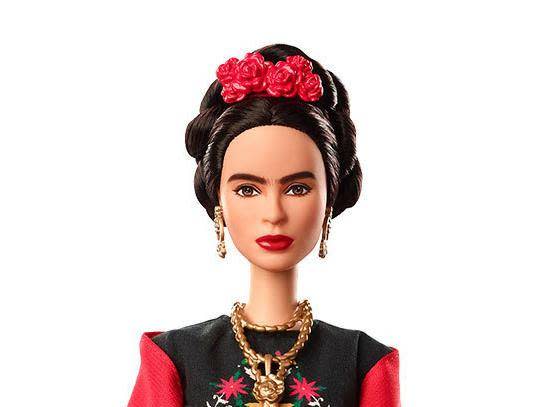Salma Hayek lambasts barbie version of Mexcian artist Frida Kahlo
Salma Hayek has lambasted Mattel for creating a Barbie version of the radical Mexican painter Frida Kahlo.
Mattel, the US multinational toy company, revealed a Barbie version of Kahlo last week as part of an “Inspiring Women” series which also included mathematician Katherine Johnson and aviator Amelia Earhart.
The Hollywood actor, who was nominated for an Oscar for playing Kahlo in 2002 film Frida, questioned why the iconic artist had been turned into a figurine.
Hayek argued the feminist icon – who used her artwork to explore issues of gender, postcolonialism, class and race in Mexcian society – was wholly unique and did not seek to emulate others.
“Frida Kahlo never tried to be or look like anyone else. She celebrated her uniqueness. How could they turn her into a Barbie,” the Mexican actor said on Instagram.

Hayek, who used the hashtag “body image” in the post, co-produced Frida and depicted the artist in the biopic. She received widespread critical acclaim for the breakthrough role and was also nominated for a Golden Globe and BAFTA for Best Actress.

Hayek, who also starred in Ugly Betty, is not the only person to speak out about the doll of Kahlo.
Last week, a bitter dispute arose between Kahlo’s relatives and the corporation which claims it possesses the rights to her image.
Kahlo’s family allege the rights to Kahlo’s image have been stolen and Mattel is not allowed to base a figurine on her. The family have also accused the toy firm of misrepresenting the most popular and recognisable Mexican artist in the world’s appearance and overlooking the values she represented.
“Mrs Mara Romeo, great-niece of Frida Kahlo, is the sole owner of the rights of the image of the illustrious Mexican painter Frida Kahlo,” the family said in a statement.
But Mattel insisted it possessed the correct permission to produce the likeness. The toy company provided a statement from the Frida Kahlo Corporation in which it said it gained its rights to reproduce Kahlo's image from Kahlo's niece, Isolda Pinedo Kahlo.
People have fiercely criticised the doll on social media and argued it does not truthfully represent Kahlo’s heavy eyebrows. Critics also argued its clothing ceases to accurately depict the intricate, iconic Tehuana-style dresses the painter is famed for wearing.
They also criticised its slim figure and the lack of any trace of the childhood polio or injuries caused by a bus crash that meant the artist was debilitated for lengthy periods of time.
Kahlo’s image has appeared on a plethora of consumer products since she died in 1954 - with her face displayed on everything from lipstick to tequila to handbags.
Ironically, Kahlo herself was a communist. She joined the Mexican Communist Party in 1927 where she met her husband and celebrated muralist Diego Rivera and was hurled into a close circle of left-wing activists and artists.
The artist, who is famed for her self-portraits, was known for decorating her corsets with hammers and sickles. When she died she was laid to rest beneath a communist flag.


